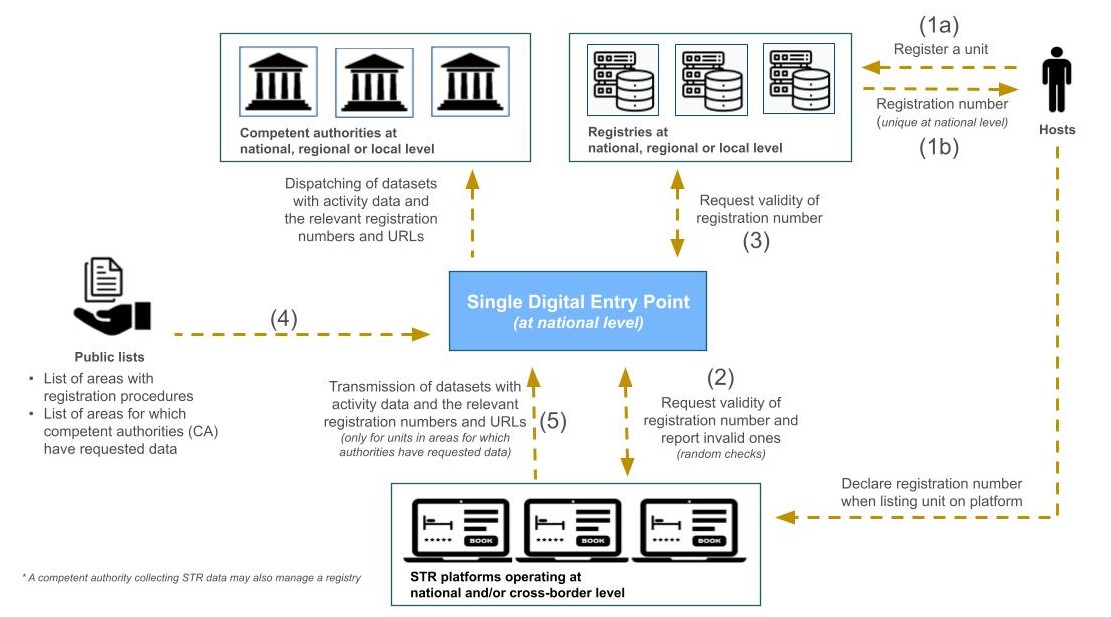As the platform economy continues to influence the tourism sector, the European Union is making efforts to better manage the local impact of short-term accommodation rentals. The regulation on data collection and sharing relating to short-term accommodation rental services (2022/0358/COD) aims to provide more transparency on the impact of short-term rentals to competent authorities, enabling them to regulate this growing market more effectively. Furthermore, the regulation underscores the EU's commitment to innovation and consumer protection, aiming to harmonize data generation and sharing across member states. This initiative not only promises to bolster transparency within the industry but also tackles challenges stemming from its rapid expansion, such as housing availability and community impact.
At its core, the regulation seeks to establish a unified framework (as depicted in the figure underneath) that enables better data sharing between short-term rental platforms and competent authorities. Setting a base for registration procedures, data sharing obligations, and compliance mechanisms are set forth, envisioning a fairer and more efficient market.

At the heart of the new regulation is the principle of interoperable data exchange, which ensures that different information systems, devices, and applications can communicate effectively, enabling seamless data exchanges. This interoperability is critical for allowing online short-term rental platforms to interact smoothly with different public authorities across the EU. The uniform standards set by this interoperability track reduce administrative burdens and support a transparent operational framework within the short-term rental sector.
The Short Term Rental Application Profile (STR-AP) emerges as a comprehensive data model designed to standardize information capture and sharing in short-term accommodation rental services. It is part of a larger scheme aimed at harmonizing data handling practices across the European Union, which benefits both policymakers and service providers by ensuring consistency and reliability in the data received.
Acting as a semantic data model, STR-AP specifies the terms and constraints that govern data interactions within a given application context. This specificity guarantees that data exchanges are not only consistent but also adhere to stringent data protection laws, thereby safeguarding personal information while minimizing costs associated with data handling.
The integration of SEMIC (Semantic Interoperability Community) assets, such as the Core Vocabularies and Application Profiles, is pivotal to STR-AP’s development. By incorporating established resources like the Core Location Vocabulary and Core Person Vocabulary, STR-AP aligns with best practices in data modeling, ensuring that the system is interoperable with existing data frameworks and meets the EU’s standards for data exchange.
In conclusion, the STR-AP serves as both a strategic tool and a crucial facilitator that aims to enhance data interoperability and increase operational efficiencies across Europe’s short-term rental sector. This unified approach underscores the European Union’s commitment to fostering a transparent, equitable, and sustainable tourism industry. By streamlining data exchanges and ensuring compliance with stringent data protection standards, the STR-AP supports effective governance and promotes a conducive environment for the growth of the short-term rental market.
For those interested in exploring the specifics of the STR-AP data model, additional information and resources are available on its official GitHub page, providing detailed insights into its structure and functionalities. This resource is invaluable for developers, policymakers, and stakeholders aiming to align with or implement the EU’s data sharing standards in the short-term accommodation sector.

